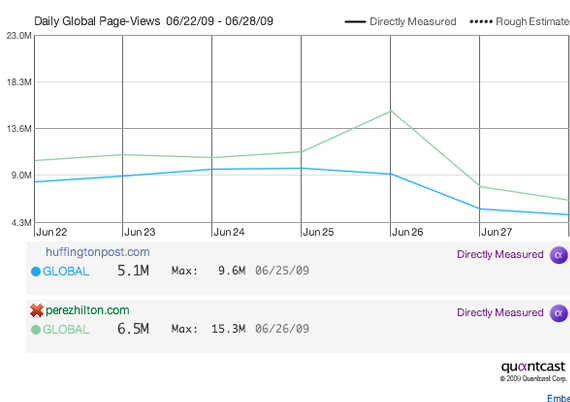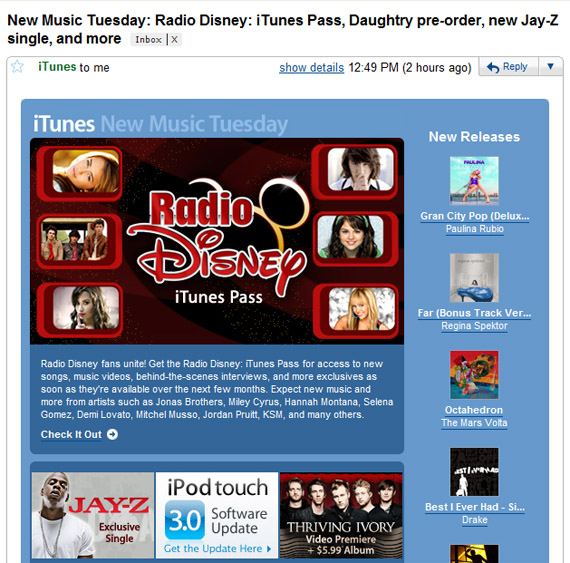Yesterday TechCrunch put on the "Real-Time CrunchUp" event to discuss what has been billed as the real-time web. Alongside several product demos and company launches, the most prominent discussion topics were: - Business models and opportunities (Ron Conway provided his ten ideas)
- Businesses vs. Features: are these products able to sustain themselves as companies or are they features within larger companies
- Is the real-time web just beginning or is the lifecycle relatively advanced? And what does this mean for Google, Yahoo, Microsoft and other big company's abilities to compete?
- Twitter vs. Facebook vs. Friendfeed and what each mean for openness, competition, user experience and, ultimately, the consumer
- Noise. A theme I have written much about: the real-time web is overwhelming. How do we filter the noise to arrive at what is most important and relevant. And does filtering mean that the web is no-longer real time? The last theme (noise) is most important to me because, as the real-time web becomes more popular (and it will), it becomes increasingly difficult to digest and decipher. This is where Facebook will have a major advantage (using the social graph and 'like' / commenting systems). It is also where Friendfeed has already done a great job by using activity, relevancy, social connections, etc to deliver the news that it considers most important:
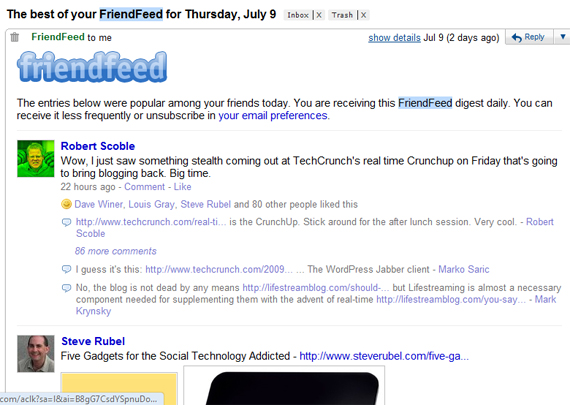
Other companies that are well-positioned here (and that I have covered; click for coverage): - Tweetmeme - Bitly - Aardvark
And proof that filtering is especially critical for Twitter - even if, as many of the CrunchUp panelists argued, it delays the immediacy of the real-time web: beside the live-stream of the CrunchUp final panel was a Twitter widget displaying 'relevant' tweets (defined by hashtags). Spammers quickly and repeated followed. I added the below screenshot and blocked out the very graphic user icon:


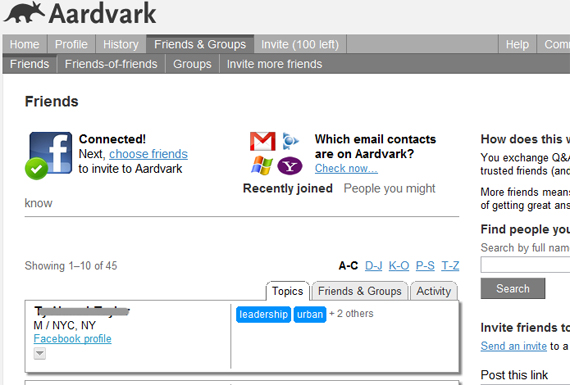
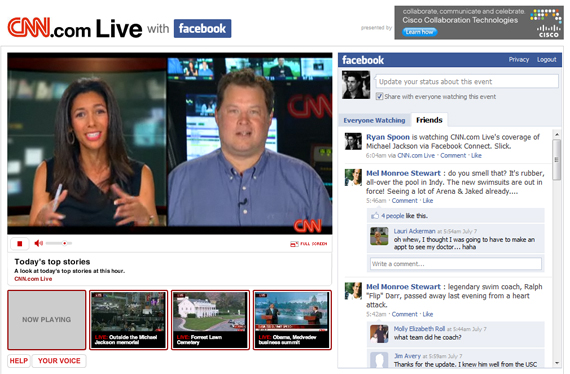
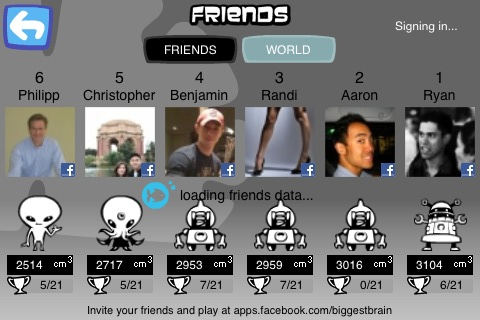 - Once connected, users are notified of where their score sits within their social graph, instantly encouraging competitiveness. When you pass a friend's high score, the screen animates as you move up the 'podium' - its terrificly clever and yet a simple way to bring relationships to an otherwise one-dimensional game
- Once connected, users are notified of where their score sits within their social graph, instantly encouraging competitiveness. When you pass a friend's high score, the screen animates as you move up the 'podium' - its terrificly clever and yet a simple way to bring relationships to an otherwise one-dimensional game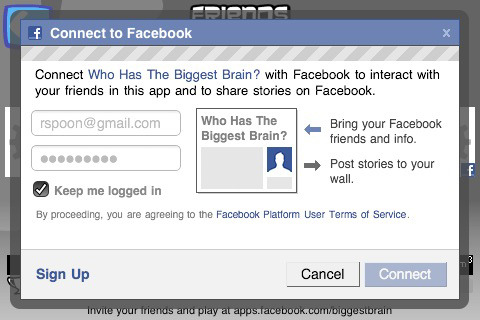
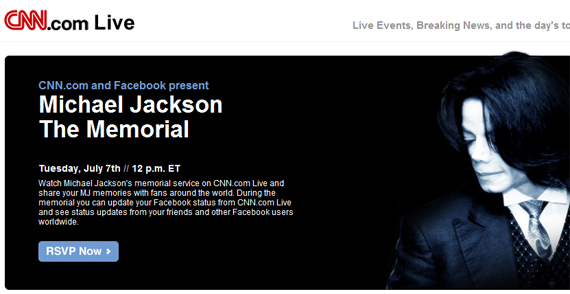 CNN has been promoting the event for days and throughout the morning. Facebook is a core element of their television and internet coverage.... and it makes total sense:
CNN has been promoting the event for days and throughout the morning. Facebook is a core element of their television and internet coverage.... and it makes total sense: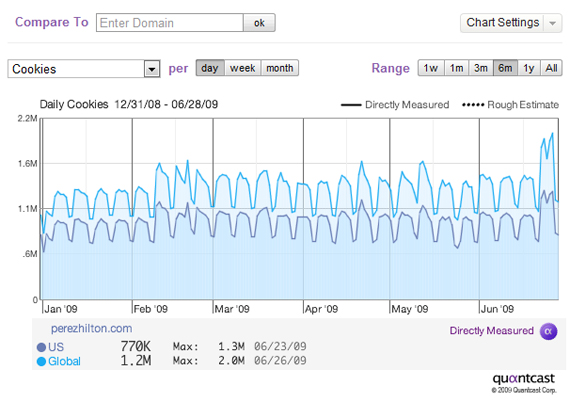 To put this in perspective, we can compare it to Huffington Post's traffic for June 26th (also measured by Quantcast). Measured by uniques, HuffingtonPost is a far larger site: 19.5m monthly uniques vs. 13.1m. By pagviews, PerezHilton is far larger: ~300m monthly views vs. ~220m. But Perez dominated by any measurement and, regardless of the 'winner', these are huge numbers for nontraditional media sources and proof that 'breaking' news is being delivered - and read! - in nontraditional places.
To put this in perspective, we can compare it to Huffington Post's traffic for June 26th (also measured by Quantcast). Measured by uniques, HuffingtonPost is a far larger site: 19.5m monthly uniques vs. 13.1m. By pagviews, PerezHilton is far larger: ~300m monthly views vs. ~220m. But Perez dominated by any measurement and, regardless of the 'winner', these are huge numbers for nontraditional media sources and proof that 'breaking' news is being delivered - and read! - in nontraditional places.